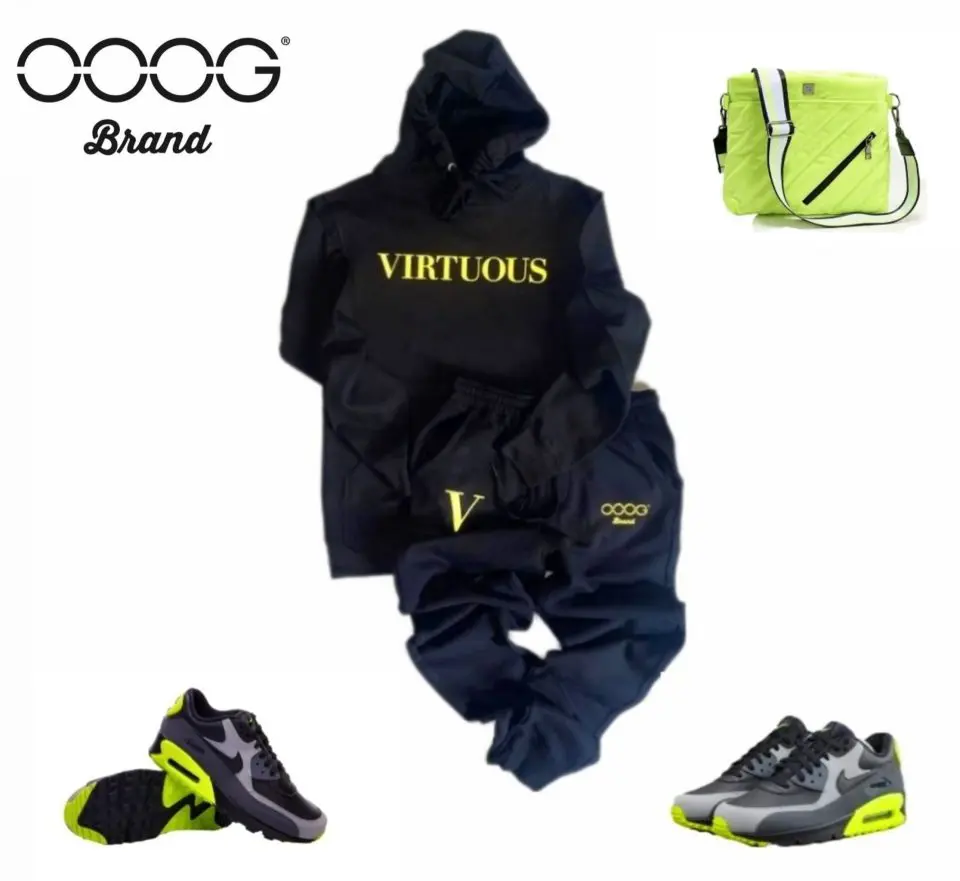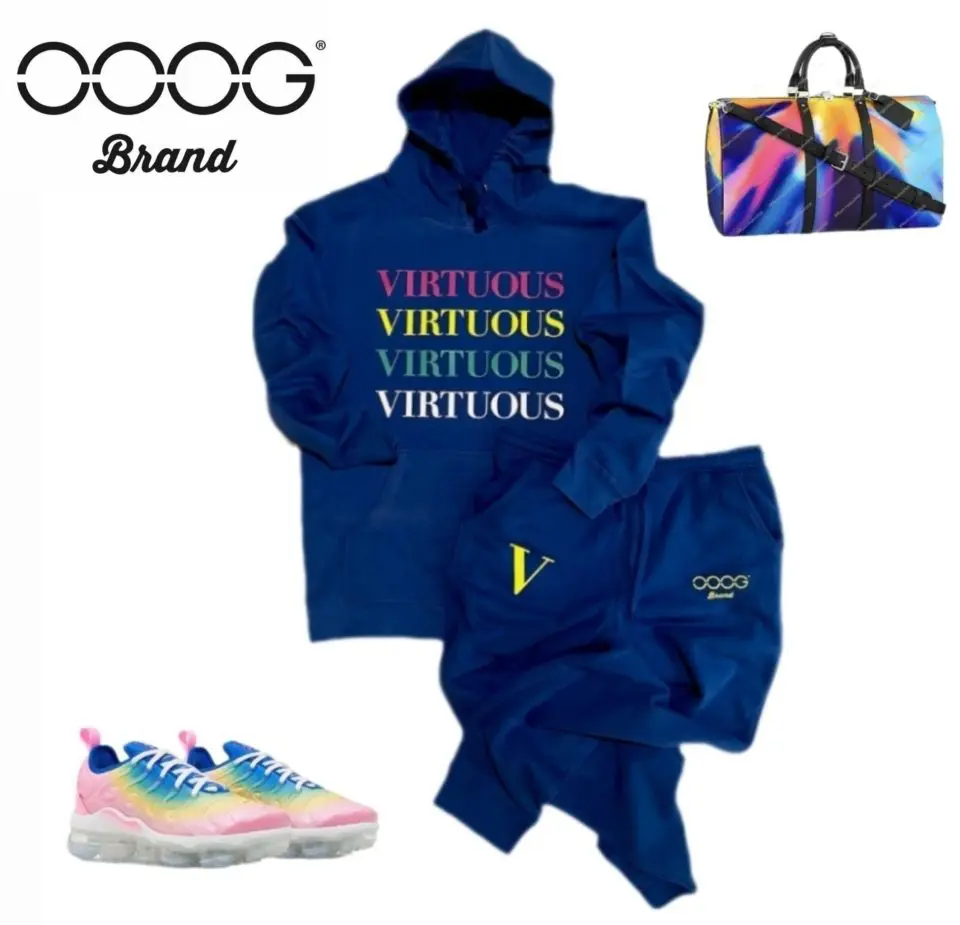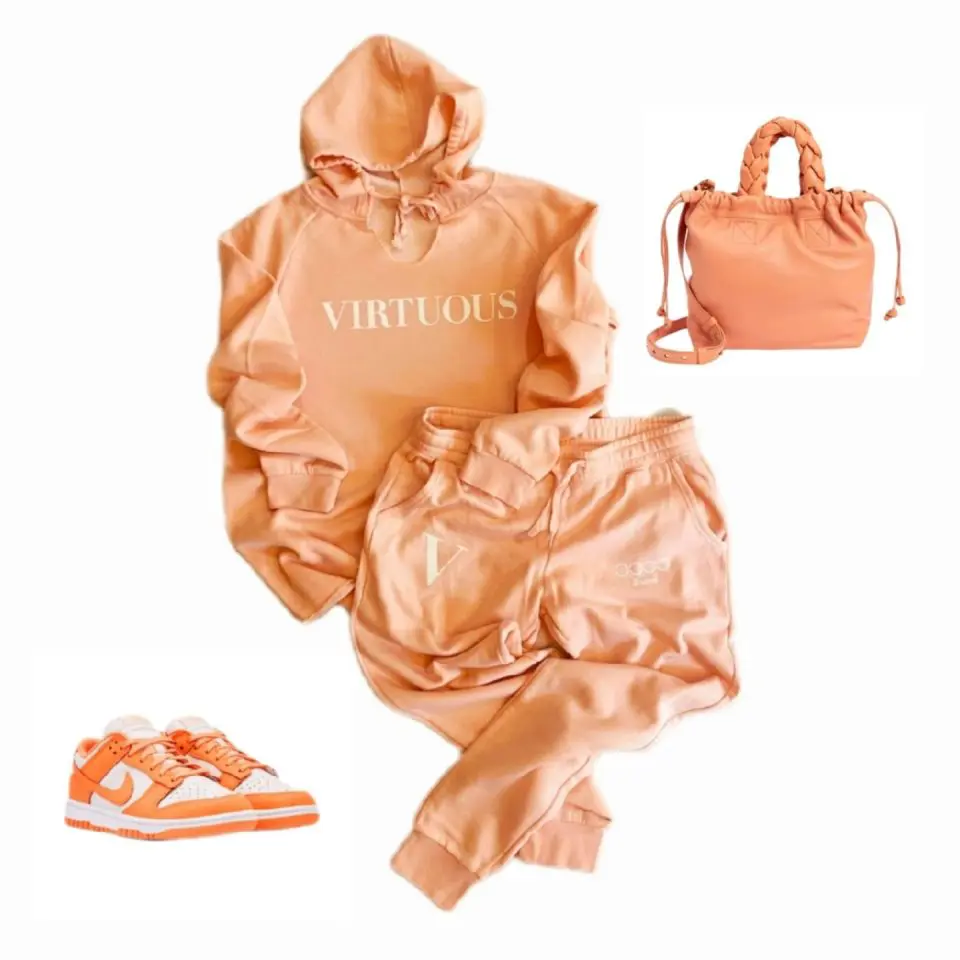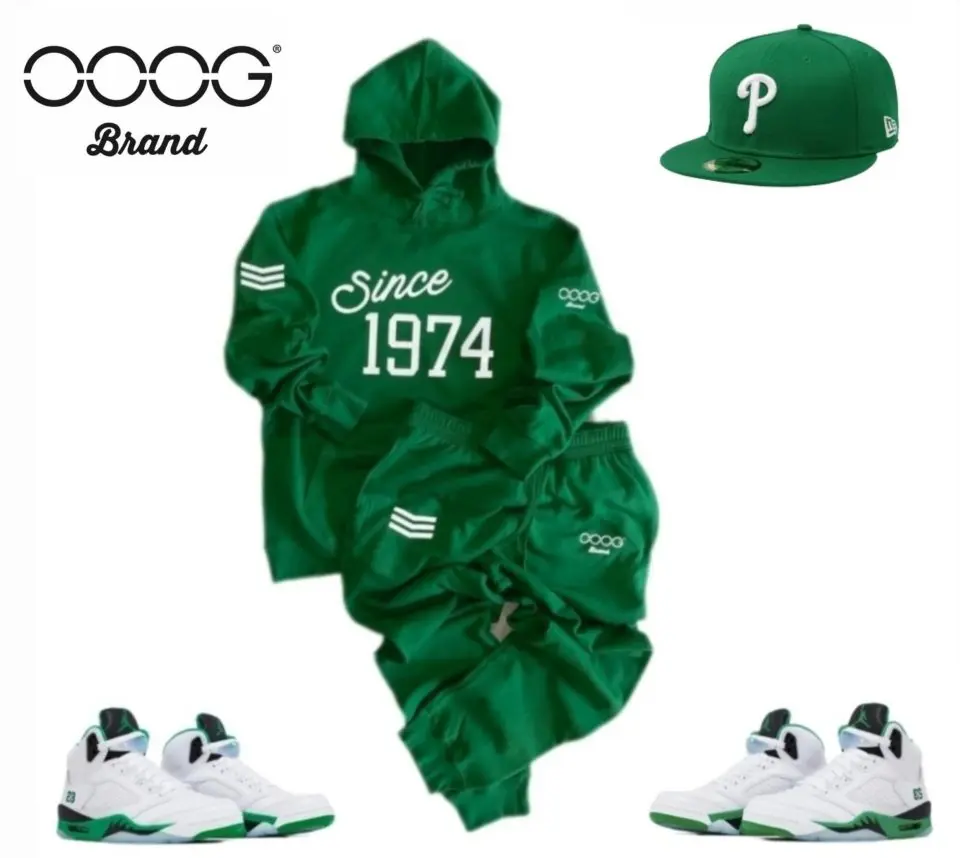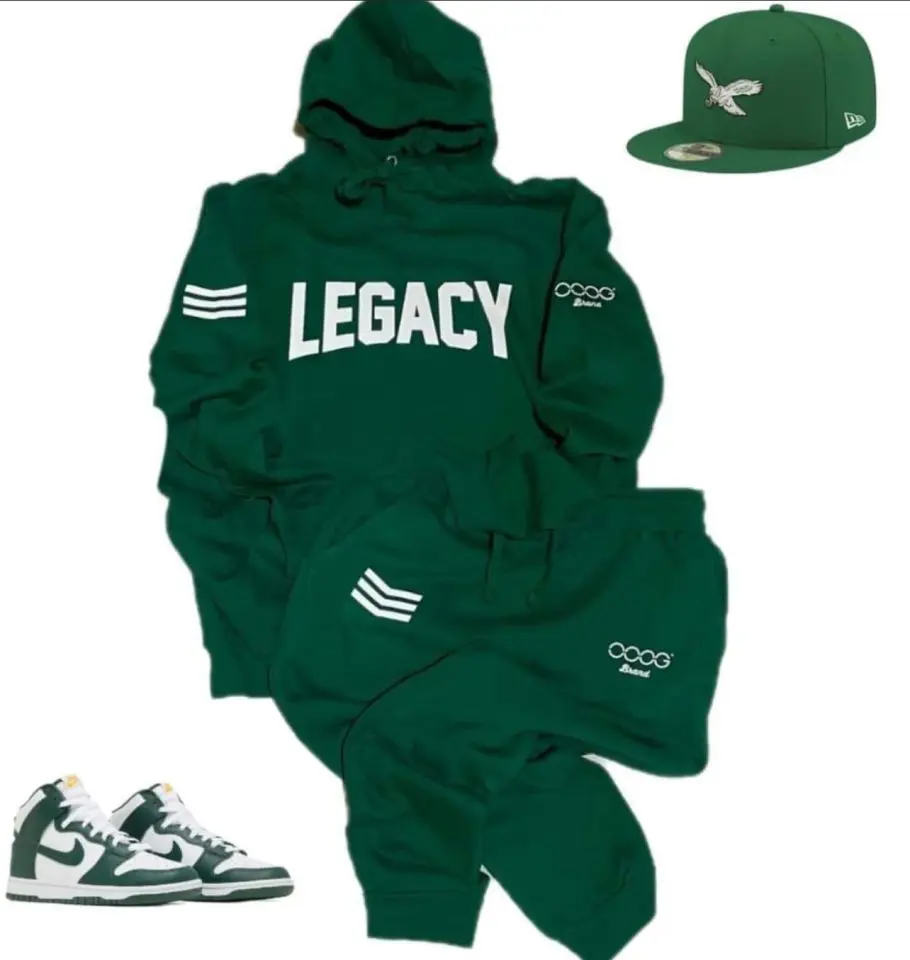In the electric landscape of Atlanta’s fashion scene, few stories resonate with as much authenticity and divine purpose as that of Street Lotto, also known as Keith “Lotto” Smith. What began as a simple marketing strategy for a hip-hop single in 2014 has evolved into OOOG Brand (pronounced Triple OG Brand), one of the fastest-growing lifestyle brands in contemporary fashion. The brand, whose name cleverly stands for the Omnipotent Opportunities of God, emerged from a serendipitous moment when a producer’s shorthand notation sparked an entrepreneurial revelation.
[Editor’s note: This is a truncated transcription of a longer video interview. Please see the video for the extended version. Some errors may occur.]
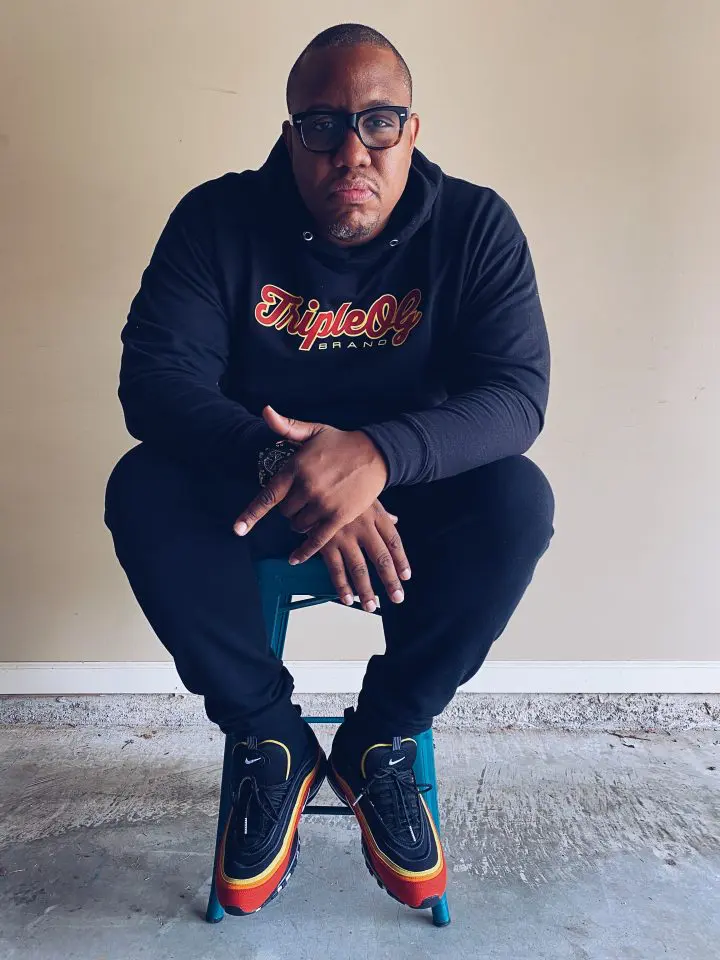
What’s the origin story behind OOOG Brand?
All right. Well, first of all, I appreciate you for having me on the show. My name is Street Lotto. People have known me around this city of Atlanta for, I don’t know, the last 15, 20 years marketing and promoting music, and now just switching over into the space in the last 10 years of marketing a brand known as triple OG brand, which is an acronym, and it stands for the Omnipotent Opportunities of God. We’ve been doing this for 10 years. Me and my partner, Stace Lace, started out just as a music thing, promoting music. I had a song called Triple OG, and the way that it got sent back to me in the mix, it said, O-O-O-G. And I just thought that was dope. I never seen triple OG written like that. So, we made it as a t-shirt just to market some music. And man, that took off way farther than anything we had ever done musically. And it caught on. 30 days later, we were product sponsored at the Revolt Music Conference in Miami, 2014, and led us up to where we are now.
What’s your approach to designing a brand versus just creating a t-shirt line?
Well, I think the thing that we started with—let’s just go back to the origin. Seeing O-O-O-G, triple OG, that was a saying that was already in the atmosphere, right? It was already just a part of culture, right? And then the way that we designed the logo was also very familiar to the eye. And you want to do things that resonate with people. It’s like I’m a bartender, right? And you come into a bar, I’m going to serve you a drink that you’re pretty familiar with before you start asking me, “Hey, what do you recommend?” And that’s kind of how it worked. It’s just meeting the culture where it was, and then putting our spin on things.
And so, I would say that was probably the number one thing that we did to allow us to connect with people. And once people saw that, I mean, they were drawn right in. So just to bring it in short, if I showed you a picture of you and I in the picture, right, what’s the first thing you’re going to look at? I’m asking you. You’re going to look at you, right? Right? Because that’s how you’re going to determine if it’s a good picture or not. Do I look good in this picture? Do I see myself? And that’s what we wanted to do with the brand, make sure that anybody that came into it— your vibe is your tribe. You see yourself; And I think that’s what made us connect with everybody.
How has your approach to product development evolved?
It’s listening. So, when we started, we started with a few and we just listened to the request of the few people who were bought into, what we were doing. So, they would always say, “Well, do you have this? Because if you have this, I would buy that,” right? Okay, cool. So, we make it, and whoever recommended it, they never buy it. But everybody else does. And that’s basically how we built our catalog over time, just listening to our consumer. Just listening to whatever it was that they want, because you will hear from a few different ways and you create it and see what flies. And most of the time they were right, they were dead on.
And let me just be honest with you, when we started, we were just thinking t-shirts. We weren’t thinking hoodies, jogging suits, one piece. I mean, it’s so many things that we do now that we weren’t thinking. But people were bought into the brand, and that just made us step outside our comfort zone. So, when they say, “Well, can you do it?” Yep, we can do it. And then I figure out how to do it.
What role does purpose play in your design process?
We have zero experience coming into this. Well, the only experience I would say we had was marketing in ourselves as artists, right? And as an artist, you constantly have to recreate yourself, right? So, you understand that about the culture, but it’s about having purpose in what you put out here. So, each piece that we put out, it has a purpose and it has to have a meaning behind it, or we don’t do it, right? So, for instance, this, what I’m wearing here is Legacy, which is one of our popular pieces.
But legacy is all about when you’re left here, all that’s left is your legacy. Is this place a better place because you were here? And there are things that have you in that space where you’re thinking like that. So, you have purpose and intent when you wear what you wear. How people say, “Say it with your chest,” that’s pretty much what we’re doing here—say it with your chest. So, I would say for the young designers designing anything, first and foremost, what is the purpose?
The aesthetic is great, but what is the purpose behind what you’re doing? Because the brands before were just names, right? You look at them; they were just all namesakes. Okay, well, this is about connecting to the cultures. It’s about something bigger than just being a name. And I would say for anybody doing that, the tide has shifted. We’re not blown away by the names anymore. It’s, okay, what is it about? What are you doing? Do I see myself in this picture? And for young designers, I think that’s what it’s about more than anything else.
How do you tap into creativity and cultural relevance?
Well, for mine is prayer, right? Because I always ask God to direct my steps. And, a lot of the times when you do stuff, you’re like, oh man, this may not be the best. That’s what you’re thinking. But when there’s a purpose behind it, and you’re being directed, it’s exactly what you needed, but you didn’t know. I don’t really know how to explain it better than that. But you just got to ask for that direction. And number two, I am tapped into the culture. So, the stuff that I consume is related to the advancement of the culture. So, it’s seeing the space. We need this. This is what we need right now. I’m a part of this culture. We need this. And then it’s hitting that hole.
How has culture evolved since your early days in music marketing?
Man, culture today is like the Wild Wild West. It’s something, everything in there because consumption is at an all-time high. I was born in 74, so I was at the front of hip-hop culture, but I still keep that at the core. Sometimes I think we forgot why we came. And it’s about being in a creative space and just working with what you have. If you look at the originators of hip-hop, they all just work with what they had. They didn’t have a lot of money. They didn’t have a lot of equipment. It was a whole lot of stuff that they didn’t have, but they just took the little bit of what they had and expanded on it. And it goes back to biblical principles, really.
The guys were asked to work with the talents. I give you two talents. What did you do with that talent? I give you one talent. What did you do? It all comes back to that. That’s hip-hop. That’s the culture. I mean, they throw a lot of other stuff into the culture now. That’s really not the culture, but the origin of it was working with what you had to make the best product, service, or whatever else you could. That’s at the core of the hip-hop culture. And that’s what we are with it.
What does the OOOG Brand represent as a lifestyle?
Yeah, so we always say it’s not just the brand. It’s the lifestyle. But it actually is a lifestyle. What we do with our marks—we got about 18 different marks to describe the brand—and it’s all about meeting people where they are. So, for instance, we see LEGACY, Earned Not Given, Do More. Say Less., Deuces To Excuses., Pray More Fear Less. I mean, we just got so many marks, and I’m just thinking off the top of my head right now, but we got so many ways to express it. You could wear our brand seven days, seven ways, right? But it may mean something different on Tuesday than it means on Friday—just a way of expression.
How has faith influenced your business journey?
Well, that’s a good question. Your concern can’t be the money. I’ve been to rooms that you can’t pay to get in. I work with people you can’t pay to work with, no matter how much money you got. And that’s all about me maximizing my gift and being within my gift because it’ll put me amongst great people. My gift makes room for me. And that’s what this is all about. I get so many stories from people with a brand and say, hey, I was wearing a brand, and this happened, or this happened, and I just so happened to be wearing this, and I just want you to know, we get that so much that lets me know that there’s something else working on our behalf that isn’t working, in general situations. And I’m blessed for that. I don’t focus on money. I’m more so focused on opportunities.
So as long as we can create opportunities for the betterment of who’s bought into what we’re doing in our culture, then that’s what it’s about. That’s, that’s, that’s the win. I would say, for instance, this, and this is one thing that I always visualize working with Ryan Cameron from the time that I moved into Atlanta. Ryan Cameron was the guy. Man, as he came up over time, one day I’m going to work with that guy. And then it happened. And then the things that would come to mind, ask him this, ask him that. And then he said, let me think about it. And then it happened.
Well, one thing I asked him, I asked him, I was actually about to leave the studio one day, and I said, hey, Ryan, I heard you in an airport. Man, that’s a good move, man. And I asked him about our brand being in an airport. He said, you want to be in the airport? I said, yeah. And he picked up the phone and made a call. And it happened in 10 minutes. And I’ve been in this for 10 years, and something like that happened in 10 minutes. That’s purpose, but that’s being prepared also. He’s not going to just do that if we’re not prepared. So that’s being within the gift and receiving those blessings. That’s what it’s about to me.
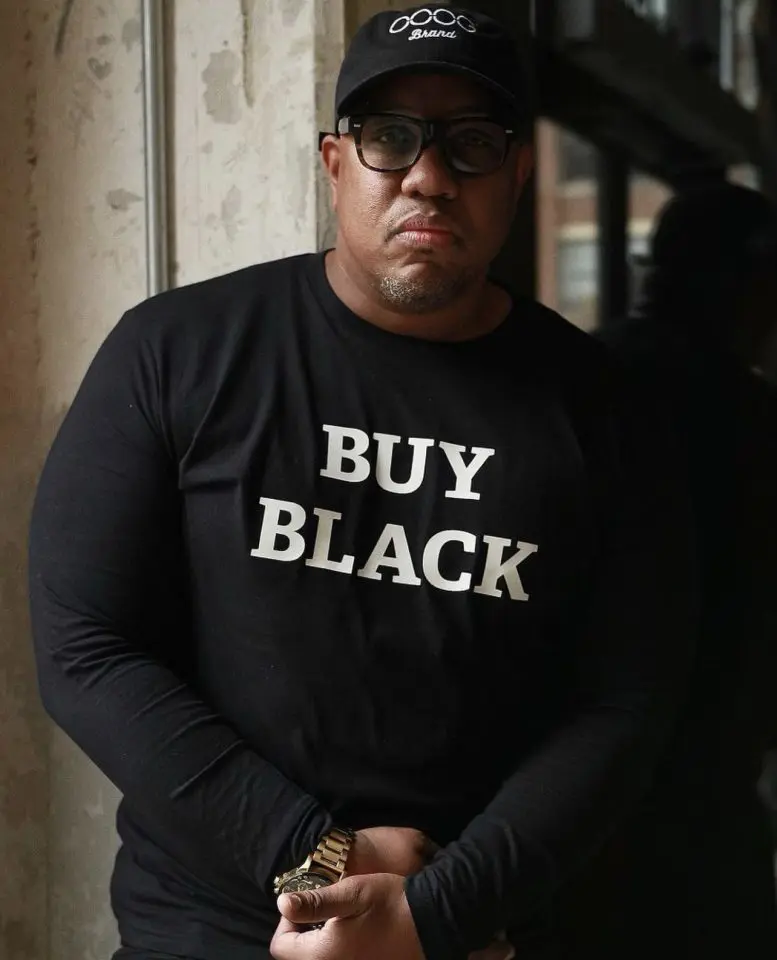
Finish the sentence “Street Lotto loves what he does because…”
It’s what he was purposed to do.
“Street Lotto has a purpose to…”
Man, lead people to the Lord, man.
“Street Lotto knows God because…”
Because I accepted Him and nobody, people hear the calling. How they say many are called, but few are chosen. I was called, and I accepted the call.
In the landscape of modern streetwear, where brands often chase trends rather than set them, OOOG Brand stands as a testament to the power of purpose-driven fashion. Street Lotto’s journey from hip-hop marketing to faith-based entrepreneurship illustrates how authentic vision, coupled with divine guidance, can transform a simple t-shirt into a global movement. As the brand continues to expand its reach from Atlanta’s streets to airport terminals, it remains anchored in its founding principle: creating opportunities that reflect the omnipotent possibilities when purpose meets preparation. For Street Lotto, success isn’t measured in dollars but in lives touched—one piece of clothing at a time.
